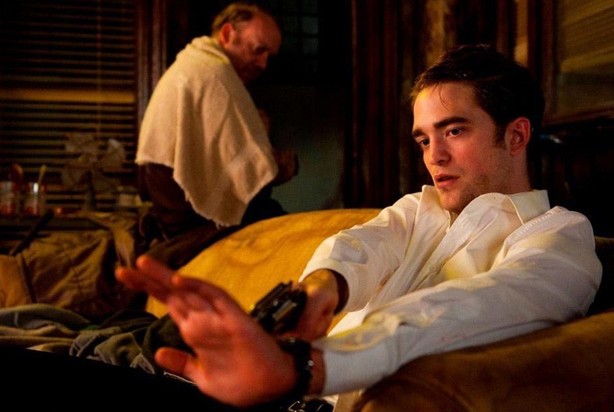Culture
The coldest, dullest “Cosmopolis”

Cosmopolis
dir. David Cronenberg
Release Date: Aug 24, 12
- 1
- 2
- 3
- 4
- 5
- 6
- 7
- 8
- 9
- 10
Full disclosure: I haven’t read Don DeLillo’s novel Cosmopolis, which may contribute to my total distaste for David Cronenberg’s film Cosmopolis. After hitting a creative resurgence with the one-two punch of A History of Violence (a very good, if overly beloved, film) and Eastern Promises, Cronenberg has followed up with the less savory twofer of last year’s banal A Dangerous Method and now the unwatchable Cosmopolis, a film about which “unwatchable” feels like a generous description. There is the skeleton of a radical, incendiary film here, a Videodrome about the 1%, but this is stored away beneath about 50 layers of cold, studied detachment and pseudo-profound dialogue delivered with all the conviction of a corpse. I’m aware that this is by design; Cronenberg does very little by accident. However, there are things that simply work better on the page than on film, and the entirety of Cosmopolis is among them.
Eric Packer (Robert Pattinson) is a Wall Street genius, 28 years old and valued in the tens of billions. He has found ways to break the entirety of the global economy into an infinite series of graphs, charts, projections and theoretical models, ones he can endlessly manipulate with cloistered ennui from his futuristic limousine. Inside this limo, over the course of a single day in which he insists on getting a haircut (from a man, as we learn, who can connect him to his more humane aspects while delivering onerous, numb dialogue of his own), Packer will encounter anarchists, mistresses, a roster of concerned staffers and the escalating threat of an attempt on his life. Where the trouble begins with Cosmopolis is when the film rarely leaves the limo or its immediate surroundings, an interesting experiment on paper that turns sour quickly when one realizes that a far more interesting film is happening outside the limo, one we only get to see in flashes through Packer’s distant, self-indulgent perspective.
One of the tragedies of the film, going on the assumption that its unbearable dullness is by design, is that Pattinson is perfectly cast, toying around with the deliberate castration he brought to Edward Cullen in the Twilight films as an incorrigible bastard who talks in profundities and lacks affect in nearly every situation, even as he starts to realize that his entire life may be collapsing on itself. (The film is so incoherent that it takes far longer than it should to figure this out.) Likewise, for such a disaster, Cronenberg assembled an excellent if gimmicky cast, with Juliette Binoche, Samantha Morton, Kevin Durand, Paul Giamatti and Jay Baruchel (among others) all appearing briefly to build Packer’s endlessly-in-flux universe. This is a universe, however, that the film treats with total disregard, much like the people in it. There is room for sharp satire here, especially in a sequence in which Morton and Pattinson calmly discuss the logical fallacies of anarchism as the limo is tagged and assaulted by protestors.
Instead, Cosmopolis contents itself with the sort of dialogue that appeals to semiotics scholars and virtually nobody else. Even the most educated would be hard-pressed to discern anything of particular out of a film that seems to want to explore the human need for feeling and emotion, but without being particularly interested in that emotion or the humans capable of feeling it. There’s a little bit of the frank sex and body violence that Cronenberg does so famously well, but it hardly pulls you out of the stupor that the film’s endless stream of unsubstantiated ideas induced. And, sadly enough, that might be the point. If Cronenberg’s plan was to drag the viewer into the emotional black hole of Eric Packer, he did a fine job. It just makes for a truly awful viewing experience.